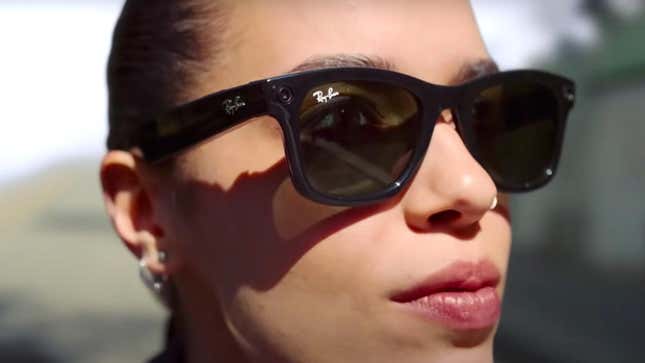Good morning, Quartz readers!
Here’s what you need to know
Twitter shareholders will take Elon Musk’s dumb joke money, please. Yesterday’s vote to approve the Tesla CEO’s $44 billion takeover was predictable—investors only had two real options: make money or lose money.
Ukraine seized dozens of settlements from Russia. It has reclaimed 6,000 sq km (2,316 sq miles) of territory in an ongoing counter-offensive, according to President Volodymyr Zelenskyy, who has also renewed calls for Western military aid.
The UK reported its lowest unemployment rate since 1974. It fell to 3.6%, mostly due to workforce dropouts, as long-term illness impacts its shrinking labor pool.
China approved new video game licenses after a 14-month pause. Tencent and NetEase got the greenlight, and analysts wonder if Beijing’s tech crackdown is thawing.
Wall Street heavyweights are launching a new crypto exchange. EDX Markets will debut in November, with backers including Charles Schwab and Fidelity Digital Assets.
Honda announced it will release 10 new electric motorbikes by 2025. The company aims to hit 1 million in annual EV unit sales by 2027.
UNGA will start revealing progress towards its sustainable development goals. We’re not holding our breath. Keep up with what the United Nations General Assembly does—and doesn’t do—over the next two weeks by signing up for our Need to Know: UNGA 2022 limited email.
What to watch for
The US initial public offering market is finally seeing some action. Slated for Thursday, insurance giant AIG’s flotation of its life and retirement unit Corebridge Financial would be the biggest US IPO so far this year. The market debut aims to raise $1.92 billion at a $15.5 billion valuation, overshadowing private equity firm TPG’s $1.1 billion listing in January.
2021 proved a milestone year for IPOs. The number of companies that went public crossed 1,000 for the first time, attracting a total $315 billion in investment—setting a new bar for a record that had never surpassed $200 billion.
The fall from those dizzying heights has been a lot steeper than expected, due to those “factors outside of our control,” as CEOs like to call them—i.e. inflation-boosting supply chain disruptions and labor shortages. AIG also blamed market conditions for a delay in Corebridge’s planned listing. Thursday will show whether good things come to those who wait.
Are those Ray-Bans you’re wearing, or are you just recording me?

When you saw the photo above, did you notice the camera? When Quartz’s Adario Strange wore Meta’s Ray-Ban Stories to lunch, none of us realized he wasn’t just being regular cool, but tech cool.
Meta had the right idea in avoiding the design folly of, say, the clunky Google Glass. But it overcorrected by embedding tech a bit too seamlessly in the instantly recognizable Wayfarer. Something as simple as a distinctive design element or a prominent new logo might alert one’s lunch pals that the shades they see before them are $300 smart glasses and not classic, analog $163 Ray-Bans. Plus, that kind of incognito styling can come off as more than a little creepy.
Ray-Ban Stories have yet to really catch on, and it all tracks with Meta’s struggle to sell hardware, says Adario. However, there’s still time: They’re the best-looking smart glasses on the market, and a new T-Mobile partnership could up the product’s appeal.
Thinking of offering abortion benefits?
Of the 114 major US employers who reportedly have pledged to offer or expand abortion-related benefits since a Supreme Court decision reversing federal reproductive rights was first leaked in May, 54 of them are in the Fortune 500. These types of policies represent meaningful gestures of support in the face of drastic rollbacks to reproductive rights. However, they also raise serious concerns about safety and confidentiality.
For Quartz at Work, Rebecca Grant lays out how employers can offer abortion benefits while remaining compliant—and empathetic.
♦️ Love stories like this one? We’ve got a lot more where that came from, and becoming a member helps us keep them free for all. Support our journalism by picking up a membership today for 40% off.
Quartz’s most popular
🍎 Bill Gates says rich countries are tackling hunger in Africa all wrong
🙋♀️ 13 questions you should ask when interviewing for a new job
🛢️ Russia is now offering even more discounts to India on oil
🗳️ US inflation is set to cool off just as voters go to the polls
🧐 What does Britain owe Africa and when will it pay in full?
🛰️ A crypto billionaire is joining the race for private space stations
Surprising discoveries
A Persian epic poem manuscript will be up for auction. The 16th century Shahnameh folio, which contains 50,000 rhyming couplets and took 20 years to illustrate, could fetch $6.9 million (£6 million).
AI art is getting banned. Some online communities fear computer-generated works will crowd out human-made art, such as illustrated tomes containing 50,000 rhymes about kings.
Tesla wants your vote. The automaker is seeking public feedback on where to place EV charging stations across three continents.
A horse-sized Negroni cocktail broke the world record. A Bangkok hotel’s version of the aperitif was 1,109 pints (630 liters) and 400 kg (882 lbs).
Mr. Bah can help catch grandma. The mobile assistance robot detects when seniors lose balance.
Our best wishes for a productive day. Send any news, comments, charging station requests, and then those same requests but in rhyming couplets to [email protected]. Reader support makes Quartz available to all—become a member. Today’s Daily Brief was brought to you by Sofia Lotto Persio, Julia Malleck, and Susan Howson.
